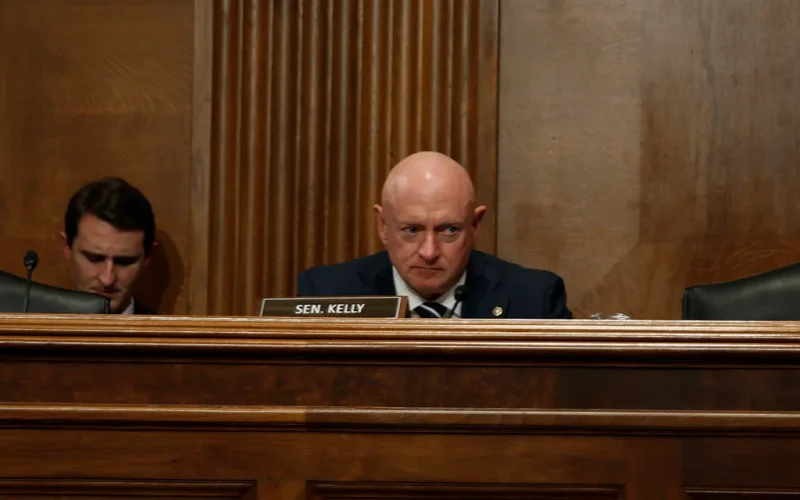By Phil Riske | Senior Reporter/Writer
Another in a series of interviews with journalists who bring you the news.
Joey Chenoweth, county editor, Casa Grande Valley Newspapers, Inc., PinalCentral.com
Born in San Jose, California, moved to Glendale attended Northern Arizona University, and graduated in 2012 with a Journalism and Political Science degree, with a business minor. Hired as a reporter for the Coolidge Examiner and promoted to editor early in 2013. As county editor, he is editor of four print publications: The Coolidge Examiner, Florence Reminder & Blade-Tribune, Maricopa Monitor, and the brand new San Tan Valley Sentinel.
What are people on the street on your beat most talking about?
Crime always gets the most attention of the stories we do, but I find what gets people talking to their small-town reporters is economic development. They want to know when a promised project is going to finally come in, and the answer is almost always “years from now.”

What I have found most interesting about this is that there isn’t just one opinion on economic development, especially in rural communities like Coolidge. To be sure, there are plenty of people who want all the development they can get, almost to an existential level. It’s not like it is up in the Valley, where if a Target opens, nearby residents think that’s a nice addition that will make their lives more convenient. In a place like Coolidge, if a Target were to open, it would mean the city has made it, that it has value. When the Wal-Mart came in before I arrived, people told me it changed the whole community, and how residents view their own community.
But there are also plenty of people who moved to rural communities in Pinal County because they are in fact rural. They want that lifestyle where they can ride horses around their immense property and now have to worry about their neighbors or traffic, which can often be a mile away. There is a sense of dread among these people that the progress of economic development is inevitable, and they will soon lose that lifestyle they love so much. They show up to planning and zoning meetings to express their disapproval at the latest subdivision or commercial plot that could pop up in their area.
How receptive are lawmakers in the county to reporters?
Well it depends on what you’re writing about! The nice thing about covering smaller communities is that there is a lot less bureaucracy that reporters need to go through in order to get to the lawmakers for a quote. Often, council members and department heads are perfectly willing to give reporters their cell phones, and they will always answer. Because councils are not full-time jobs, there are often business owners elected, so reporters also know where to find these people should they not answer their calls. On the potential down side, the lawmakers also know where reporters are all the time, so when they’re not happy with a story, there’s no escaping them.
Is there a lot of competition between Casa Grande and other cities and towns in Pinal County.
Because much of Pinal County is landlocked due to the many Native American communities around here, land can often be scarce. Places such as Florence and Coolidge in particular have few directions they can go if they want to annex more land in order to diversify their options when it comes to economic development. So, if they see an opportunity to bring in some land they know a developer is willing to invest significant money into, they are going to take it. Sometimes, this can create conflict, as another community essentially called “dibs” on the land decades earlier but never developed it. “Dibs” is not legally binding, so they can easily lose that land.
This has happened numerous times recently as Coolidge has annexed land far to the south and some way to the west because a major developer said he wanted to work with them. Because of Florence and the Gila River Indian Community, this is the only way they can annex more land. But they received opposition in the annexation efforts from Casa Grande and, especially, Eloy because the land was previously in those cities’ planning areas. Coolidge went through with the annexations anyway.
What’t the most challenging part of your job?
The constant competition that comes from social media has presented quite a few challenges. For example, it used to be that police departments would contact the local newspaper when they had a major case they wanted to let the community know about, such as a major wreck or a robbery. Now, they just post the information on Facebook. We can still take that information off the Facebook page and write a story, but so many people who follow us for news also follow that Facebook page, so we lose a significant portion of the shock value that can lead to views on our Website. Also, everyone with a phone can be a journalist, so if there’s an accident, you can bet dozens of people have already taken photos of it and put them online. The trick is to always be aware and to figure out a way to get information first. That was a lot easier when people just waited until the morning to get their news.
What story is most memorable for you?
Back in 2015, the Coolidge City Council was considering bringing back prayer before its meetings. The city attorney had crafted a resolution that would have complied with existing statutes that included people of all faiths. At the last minute, one of the council members proposed changing the resolution to include only ministers from the Christian faith. This received very little debate and three others on the council went along with this idea. I don’t think they realized that once my story came out on this, it would spread nationally, with the ACLU threatening lawsuits and protestors coming to city hall. I had a week’s worth of front-page stories up every day before the mayor called a special meeting just to reverse that decision.
One of the things about covering small towns is that the elected officials aren’t anywhere near career politicians, so they sometimes don’t know about the consequences that might come with a vote.
How do you respond to critics of the news media?
I don’t really engage in broad debates on the news media, since I don’t have the time, energy, or knowledge to speak about anybody else besides what I and my writers do. If there are specific complaints about something we do, then it is important to engage in a smaller community, since losing relationships with people, businesses and organizations has a much larger impact here than in big cities. I have found that even if we leave a conversation still disagreeing about how something was covered, the community maintains a level of respect because they know they can at least talk to their local media.







